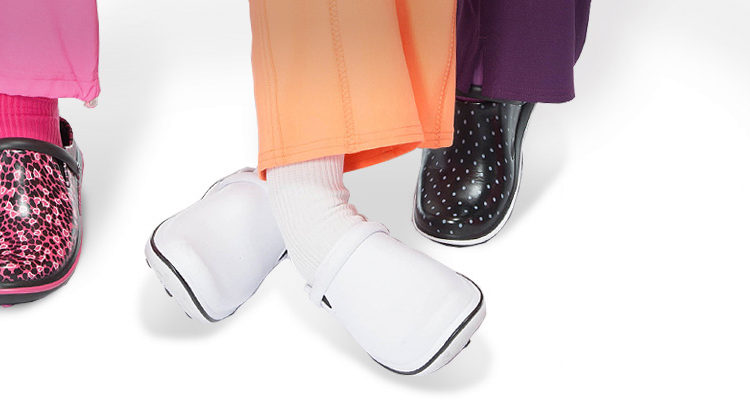
The importance of the comfort of your footwear at work
Standing for hours, day after day, not only tires the worker’s feet, but can also cause permanent damage. It can cause the joints in the bones of the feet to become misaligned (for example, causing flat feet) and can cause inflammation that could later lead to rheumatism and arthritis.
Why is foot comfort important?
There are two main categories of work-related foot injuries:
· The category that includes foot injuries from punctures, crushing, sprains, and tears.
· The second group of injuries includes those derived from slips, trips and falls. Slips and falls do not always result in a foot injury, but inattention to foot safety plays a significant role in their occurrence.
There are also other ailments such as calluses, ingrown toenails, or just tired feet that are common among workers.
Although these cannot be considered as work accidents in the strict sense, they can have serious consequences for your health and also for safety in the workplace.
They cause discomfort, pain and fatigue:
· Fatigue puts the worker more exposed to injuries that affect muscles and joints.
· Additionally, a worker who is tired and in pain is less alert and more likely to act unsafe.
· An accident or incident of any kind may occur.
How does the floor contribute to foot problems?
· Working on hard ground – like asphalt for police officers – is like being hit by a hammer, hitting your heel with every step.
· Slippery floors are dangerous from slips and falls that can lead to sprained ankles or broken foot bones.
What do I need to know about footwear?
Wearing the right footwear is crucial:
· Not only for the comfort of the foot,
· But also for the general well-being itself. Inappropriate footwear can cause or aggravate existing foot problems.
You have to choose a well-fitting shoe – neither narrow nor loose – and that supports well. Fortunately, more and more manufacturers of work shoes are producing beautiful and comfortable safety shoes, in keeping with fashion.
What should I know when buying footwear for work?
People who buy footwear for work should have the following tips:
· Do not expect that shoes that are too tight will stretch with wear and tear.
· Feet usually differ in size. Buy shoes for the bigger foot.
· Buy your shoes in the late afternoon, when your feet are prone to swelling and reach their maximum size.
· Seek advice from a doctor if appropriate shoes are not available.
· Consider using shock-absorbing soles where the job requires walking or standing on hard floors.
Wrinkled socks, or socks that are too large or too small, can cause blisters. Cotton socks are recommended. It should also be noted that colored stockings cause skin allergies in some people.
What should I know about protective footwear?
· A steel toe cap must cover the entire length of the toes.
· A steel midsole that protects the foot against penetration of sharp objects must be flexible enough to allow the foot to bend.
· No type of non-slip footwear can prevent the user from slipping on each type of surface.
How should I take care of my feet?
· Wash feet daily with soap, rinse and dry, especially between the toes.
· Trim nails straight and not too short. Don’t cut the corners.
· Wear clean socks; change them every day.
Some feet sweat more than others and are more prone to athlete’s foot. Again, following a few simple guidelines can help:
· Select shoes made of leather or canvas – not synthetic materials.
· Have several pairs of shoes and do not wear the same pair every day to allow it to air out.
Many families look to the college years for children/grandchildren with mixed emotions, excitement and trepidation. These two words rarely go together, but when it comes to college, it seems to be a perfect match.